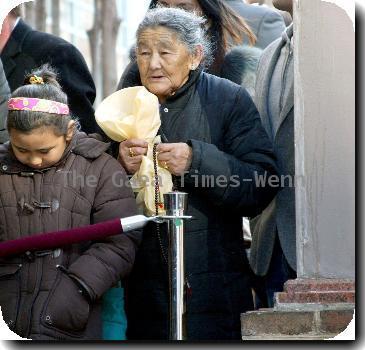Northern Ireland lawmakers vote to support next step in Catholic-Protestant cooperation
By APTuesday, March 9, 2010
NIreland lawmakers back next power-sharing step
BELFAST, Northern Ireland — Northern Ireland lawmakers voted overwhelmingly Tuesday to create a new Justice Department, the next key step in making their Catholic-Protestant government work.
Three of the four parties in Northern Ireland’s cross-community government backed the motion to take control of the territory’s police and courts from Britain next month. The long-debated move would put law and order back into local hands for the first time since Northern Ireland’s descent into civil war four decades ago.
The British, Irish and American governments long have pressed for former Belfast foes to take this step and cement their partnership as the U.S.-brokered Good Friday peace accord of 1998 intended.
The two key coalition parties — the British Protestants of the Democratic Unionists and the Irish Catholics of Sinn Fein — negotiated the pact last month during nearly two weeks of day-and-night negotiations. But it required majority approval from both sides of the Assembly to become law.
While 88 lawmakers voted in favor of the Justice Department plans, including all Catholics on the Irish-nationalist side of the house, only 17 lawmakers from the Ulster Unionists — a minority on the Protestant side of the house — voted against.
British Prime Minister Gordon Brown lauded the vote as confirming the wisdom of “devolving” powers from Britain to local politicians in the Stormont Parliament Building in Belfast.
“The courage and leadership of the parties who voted to complete devolution at Stormont will be noted around the world,” Brown said.
In Washington, U.S. Secretary of State Hillary Clinton called the vote “an important step in ensuring a peaceful and prosperous future for all of the people of Northern Ireland for generations to come.”
Clinton, who last visited Belfast in October when she urged agreement on taking control of law-and-order powers, said she looked forward to meeting the power-sharing leaders again when they visit the U.S. capital for St. Patrick’s Day next week.
But Ulster Unionist leader Reg Empey argued that his party had no choice but to vote “no” despite diplomatic pressure from British and Irish officials as well as former U.S. President George W. Bush.
Empey argued that Northern Ireland’s nearly 3-year-old coalition has failed to exercise its existing powers responsibly. He noted how the two sides of Northern Ireland’s government, called the Executive, couldn’t even agree on how to reform high school entrance examinations despite years of deadlock on the issue.
He said they couldn’t be trusted to oversee the life-or-death fight against Irish Republican Army dissidents who continue to mount attacks, including the car-bombing of a courthouse last month.
“The stark fact is the leaders of the parties in the Executive have not had a single conversation together about how we will respond to the dissident threat,” Empey said. He questioned whether Sinn Fein and the Democratic Unionists could “stand together when the inevitable challenge from these dissident elements comes.”
Peter Robinson, the Democratic Unionist leader who also leads the coalition, mocked Empey as a sore loser.
“Northern Ireland doesn’t need leaders who are timid, or who dither and dally,” Robinson said.
On Friday, underscoring international interest in securing a unanimous support for the new Justice Department in Belfast, Bush telephoned David Cameron, leader of Britain’s opposition Conservative Party, to seek his help in persuading Ulster Unionist lawmakers to vote “yes.”
But Cameron said Tuesday that, despite his party’s electoral alliance with the Ulster Unionists, he couldn’t tell them how to vote.
Bush spokesman David Sherzer said Bush’s call illustrated his interest in Northern Ireland’s progress. “He views the reconciliation in Northern Ireland as an example for other societies around the world,” Sherzer said.
The “yes” vote clears the way for Britain on April 12 to transfer control of the territory’s police and justice system to local hands for the first time since 1972, the worst year of Northern Ireland bloodshed.
Many Protestants oppose giving any Justice Department influence to Sinn Fein, whose leaders previously backed the Irish Republican Army campaign of 1970-1997. The IRA killed nearly 300 police officers and several judges as part of its failed effort to force Northern Ireland out of the United Kingdom. While most IRA members renounced violence and disarmed in 2005, Sinn Fein began supporting the police only in 2007.
Sinn Fein has agreed to give the top Justice Department post to David Ford, who leads Northern Ireland’s No. 5 party, Alliance. It is the only party that tries to attract votes equally from both sides of the community and, consequently, receives few votes from either.
On the Net:
Northern Ireland Assembly, www.niassembly.gov.uk/
Associated Press Writers Matt Lee in Washington and Jeff Carlton in Dallas contributed to this report.
Tags: Belfast, Europe, Hillary Clinton, Ireland, North America, Northern Ireland, United Kingdom, United States, Western Europe

